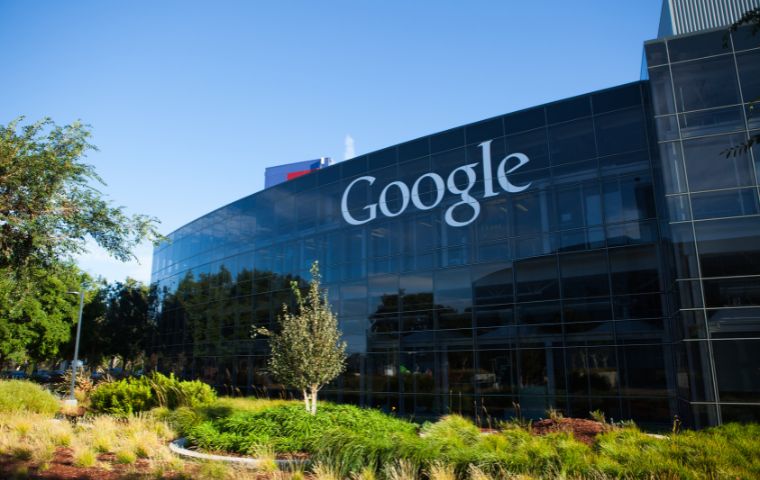The New Era of AI in 2025: From Gemini 3 to Creative AIs
Learn about the best AI tools for 2025, including Nano...
We use cookies for our website to give you the most relevant experience by remembering your preferences. By clicking “accept”, you consent to use of ALL the cookies
This website uses cookies to improve your experience while you navigate through the website. Out of these, the cookies that are categorized as necessary are stored on your browser as they are essential for the working of basic functionalities of the website. We also use third-party cookies that help us analyze and understand how you use this website. These cookies will be stored in your browser only with your consent. You also have the option to opt-out of these cookies. But opting out of some of these cookies may affect your browsing experience.
Necessary cookies are absolutely essential for the website to function properly. These cookies ensure basic functionalities and security features of the website, anonymously.
| Cookie | Duration | Description |
|---|---|---|
| cookielawinfo-checkbox-functional | 11 months | This cookie is set by GDPR Cookie Consent plugin. The cookie is used to store the user consent for the cookies in the category “Analytics”. |
| cookielawinfo-checkbox-functional | 11 months | The cookie is set by GDPR cookie consent to record the user consent for the cookies in the category “Functional”. |
| cookielawinfo-checkbox-necessary | 11 months | This cookie is set by GDPR Cookie Consent plugin. The cookies is used to store the user consent for the cookies in the category “Necessary”. |
| cookielawinfo-checkbox-others | 11 months | This cookie is set by GDPR Cookie Consent plugin. The cookie is used to store the user consent for the cookies in the category “Other. |
| cookielawinfo-checkbox-performance | 11 months | This cookie is set by GDPR Cookie Consent plugin. The cookie is used to store the user consent for the cookies in the category “Performance”. |
| viewed_cookie_policy | 11 months | The cookie is set by the GDPR Cookie Consent plugin and is used to store whether or not user has consented to the use of cookies. It does not store any personal data. |
Functional cookies help to perform certain functionalities like sharing the content of the website on social media platforms, collect feedbacks, and other third-party features.
Performance cookies are used to understand and analyze the key performance indexes of the website which helps in delivering a better user experience for the visitors.
Analytical cookies are used to understand how visitors interact with the website. These cookies help provide information on metrics the number of visitors, bounce rate, traffic source, etc.
Advertisement cookies are used to provide visitors with relevant ads and marketing campaigns. These cookies track visitors across websites and collect information to provide customized ads.
Other uncategorized cookies are those that are being analyzed and have not been classified into a category as yet.
Cyberia Tech, Inc. respects your privacy. This Privacy Policy explains how we collect, use, and share your information. By using our services, you agree to this policy. If any other agreements conflict with this Privacy Policy, the terms of those agreements prevail.
Cyberia Tech complies with the EU-US and Swiss-US Privacy Shield Frameworks for handling personal data from the EEA, UK, and Switzerland. In case of any conflict, the Privacy Shield Principles prevail. Learn more at Privacy Shield. Key Definitions
Information linked to an individual, transferred from the EEA, UK, or Switzerland to the U.S.
Data revealing race, religion, health, sexual orientation, and similar categories.
Effective Date: [ 2026 / 03 / 05 ]
Welcome to The Cyberia Tech ! By accessing or using our website or services, you agree to
comply with and be bound by these Terms of Use and our Privacy Policy. If you do not agree with
these terms, please do not use our Services.
Loading
0 %

That was surprising news about How Google is stepping forward to the next level of optimizing its search result.
Google announced that it would experiment with advertising within search results powered by generative ai.
This move aims to maintain its position in the highly profitable search ads market, where it faces competition from Microsoft (MSFT.O). Let’s read more details about it.
Table of Contents
In recent months, Google and Microsoft have been competing to revolutionize how people search for information.
They have accomplished this by incorporating generative AI into their search engines.
Allowing for conversationally written responses to queries, online information synthesis, and the surfacing of relevant websites.

According to research firm MAGNA, AI skills will also change how advertisers contact consumers through search engines, a sector that is expected to expand to $286 billion this year.
Users can, for example, search “hiking backpacks for kids” on the new version of Google, and the AI may react with an ad for a specific backpack, as well as recommendations on how to buy the ideal backpack for a child, according to Google.
Using generative ai is a super-changing level to give a new meaning to user-friendliness.
This is a new, simpler, and more beneficial way to interact with Google search, according to Jerry Dischler, vice president and general manager of advertisements.
It will be an excellent opportunity to provide a beautiful user experience, which will lead to additional business prospects in the future.
According to Dischler, the business will test the new ad placements using existing ads that appear on standard Google searches.
Google also launched a new conversational chatbot to help marketers create advertising during its annual Google Marketing live event on Tuesday.

According to Google, advertisers may enter their website, and the AI chatbot will offer headlines, specific phrases, and images to use in an ad to get a consumer’s attention.
The tech titan already has a tool that can generate adverts for brands automatically.
According to Google, the tool will now have generative AI capabilities and can produce advertising depending on the context of a user’s inquiry.
If a customer searches for products for dry and sensitive skin, Google may generate an ad for a skincare brand with the tagline “soothe your dry, sensitive skin,” according to the firm.
While Google is the market leader in search advertising, Microsoft has moved rapidly to become a contender.
Microsoft has already begun testing advertisements in its Bing AI-powered search engine and has met with advertising agencies as early as February.
What is generative AI technology?
Content such as text, images, music, and even synthetic data can all be generated using generative artificial intelligence systems.
Where can I use generative AI?
When to Use Autonomous Content Generation for Marketing Purposes. Content marketing in all its forms (text, photos, videos, and audio) may be generated using generative AI.
Chatbots for Technical and Customer Service Support, Email Response Generation, and Product Demonstrations.
Undoubtedly the future of the google search engine will be more satisfactory.
This capability of generative ai will bring a wide range of voices and sources; it will help you to shop more easily and improve your search result to get the best answer as soon as possible.
You Can Get More Information!
